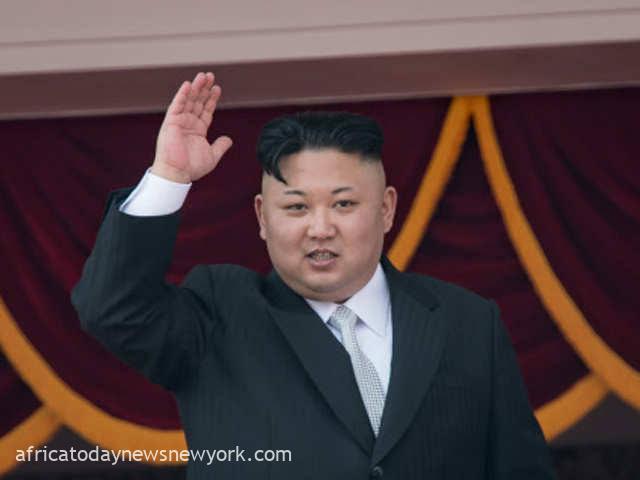As the year draws to a close, Kim Jong Un, the leader of North Korea, intensified tensions by reiterating the possibility of a nuclear attack on Seoul, while concurrently ordering an augmentation of the military arsenal to brace for a potential war, noting in Sunday’s state media reports as a looming threat on the peninsula.
Kim delivered a lengthy speech at the conclusion of five days of pivotal year-end party sessions, sharply rebuking the United States and setting the trajectory for North Korea’s military, political, and economic decisions in 2024.
The gathering unveiled blueprints for upcoming military advancements in the ensuing year, as per the official Korean Central News Agency (KCNA), including the launch of three additional spy satellites, the construction of unmanned drones, the enhancement of electronic warfare capabilities, and the fortification of nuclear and missile forces.
This year, Pyongyang secured accomplishments by successfully launching a reconnaissance satellite, officially recognizing its nuclear power status in the constitution, and conducting test-fires of its most sophisticated intercontinental ballistic missile (ICBM).
During the meeting that ended Saturday, Kim accused the United States of posing ‘various types of military threat’ and ordered his armed forces to maintain ‘overwhelming war response capability’, according to KCNA.
It is a ‘fait accompli that a war can break out at any time on the Korean peninsula due to reckless moves by the enemies to invade us’, Kim said.
To dissuade Pyongyang, Washington took proactive measures earlier this month, deploying a nuclear-powered submarine in the South Korean port city of Busan and conducting joint drills with Seoul and Tokyo, featuring long-range bombers.
Pyongyang has previously denounced the deployment of Washington’s strategic weapons, like B-52 bombers, in joint drills on the Korean peninsula as “provocative actions intending nuclear war.”
‘We must respond quickly to a possible nuclear crisis and continue to accelerate preparations to pacify the entire territory of South Korea by mobilising all physical means and forces, including nuclear force, in case of emergency,’ Kim said.
During the meeting, Kim communicated a noteworthy policy shift, stating that he would abandon efforts to seek reconciliation and reunification with South Korea. He pointed to a “persisting, uncontrollable crisis situation” that he claimed was instigated by Seoul and Washington.
Read also: Putin Accepts Kim Jong Un’s Invitation To North Korea
This year saw a sharp deterioration in inter-Korean relations, triggered by Pyongyang’s spy satellite launch, prompting Seoul to take the step of partially suspending a 2018 military agreement aimed at de-escalating tensions.
‘I believe that it is a mistake that we should no longer make to consider the people who declare us as the ‘main enemy’… as a counterpart for reconciliation and unification,’ KCNA cited Kim as saying.
Kim has directed the formulation of measures to reorganize departments overseeing cross-border affairs, intending to “fundamentally shift the direction.”
Leif Easley, a professor of international relations at Ewha University in Seoul, said the emphasis on North Korea’s “significant military capabilities” was likely aimed at hiding the country’s poor economic achievements this year.
‘Much of what state-controlled media publishes is recycled propaganda,’ he said, adding: ‘Pyongyang’s bellicose rhetoric suggests its military moves are not only about deterrence but also domestic politics and international coercion.’
Having declared itself an “irreversible” nuclear power last year, Pyongyang has consistently reiterated its stance of never giving up its nuclear program, considering it essential for the survival of the regime.
The United Nations Security Council, responding to North Korea’s first nuclear test in 2006, has adopted several resolutions urging the cessation of the nation’s nuclear and ballistic missile programs.

